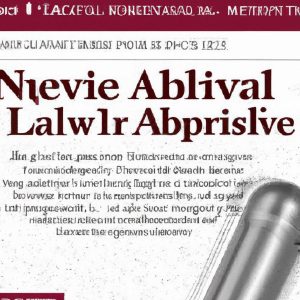When an individual passes away with assets held in their name, such assets must be disbursed out into the ownership of others. If the individual had written a last Will, the estate will be disbursed according to the person’s last wishes contained in the will. But before the disbursement can take place, some certain things regarding the estate have to be put in order through a legal process. This process is what is termed probate.
The Miami County probate process
Speaking in basic terms, probate is the process of settling the estate of a deceased person with the aim of disbursing the estate lawfully. The will left by the deceased will be filed to the Miami County Probate Court which then validates the will. Having checked the will and proving it to be valid, that is, compliant with Florida requirements, the estate will be disbursed according to the will after estate debts, tax and expenses have been settled. If there is no valid will, the Florida intestacy laws would be invoked.
As probate is a legal affair, it is often advised that the personal representative hires a probate attorney for professional guidance and assistance.
Duties of the personal representative during a Miami County probate
- Filing the petition: The first duty of the executor after the death of the testator is to file a petition to the Miami County probate court. This petition should include the original will and death certificate of the decedent. A probate attorney can help right from this moment. A hearing will then be scheduled by the court. If the petition is approved and the will is valid, the executor is given a form known as “Letters of Administration”. This authorizes him to administrate the estate.
- Inventorying the estate: The executor must collect all assets held in the decedent’s named only, valuate and may also appraise them professionally if necessary.
- Settling estate debt, tax, and expenses: A notice would be given by the representative for all creditors of the decedent to come forward with their claims. Legitimate ones will be paid accordingly from the estate purse. Tax return forms would be filed, estate tax paid as well as probate court fees, attorney fees, funeral expenses, medical bills of the decedent before death, etc. All payments are made from the estate funds.
- Disbursing the estate: After all financial obligations have been settled, the executor must then file a Petition for Discharge. If approved, he can then disburse the estate accordingly. The estate will now be declared closed.
Things to note
- Uniform Probate Code
Probate is typically lengthy, complex and expensive, but Miami and the whole of Florida has a system known as the Uniform Probate Code. This system simplifies the probate process to a great extent. But this system is only used for estates valuing less than $75,000 and/or estates of which it has been two years since the person died. In this case, a Petition for Summary Administration is filed. Above this value, a Petition for Formal Administration is filed. The Summary Administration is much simpler and takes less time than the Formal Administration.
- Intestate Administration
Note that if there is no will, the decedent is said to have died intestate and the petition will be either of two options. If the estate values over $75,000, a Petition for Formal Administration of Intestate Estate will be filed. Below this value, a Petition for Summary Administration of Intestate Estate is filed.
- Intestate Succession
The intestate succession of Florida mandates that the total estate must be passed to the spouse if the decedent had no descendant that is not also a descendant of the spouse. If there is/are, the estate is distributed among the spouse and descendant(s). The children receive everything in the absence of a spouse.
- Priority of Claims
During settling of the estate’s financial obligations, Florida Priority of Claims must be invoked by the personal representative. The priority of claims gives priority to some claim distributions over others, such that those at the top of the priority order must be paid in full before those below are given consideration. In the order, administrative costs, attorney fees, funeral expenses, debts and taxes must be settled in full below the surviving family and debts incurred after death.
Common Forms associated with the Miami County Probate
- The Petition
- Letters of Administration, or Letters Testamentary
- Notice of Administration
- Oath of Personal Representative
- Release of Claim Form
- Petition for Discharge.
Get Help from a Miami Probate Attorney
Probate is usually a complicated legal affair. In fact, the state of Florida ideally requires that you have a probate attorney working with you throughout the probate process. This is because it is vitally important that all necessary forms are properly filed and you carry out your duties efficiently and lawfully. Contact a Miami County Probate Attorney for a less traumatic probate experience.





